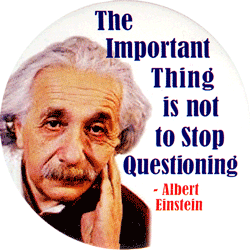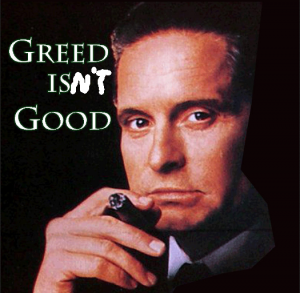When the Son of Man comes, and all the holy angels with him,
then he will sit on his glorious throne and divide the gentiles before him, as
a shepherd separates the sheep from the goats.
He shall say to those on his right, “Blessed are you, chosen of my
Father, inherit the kingdom prepared for you!
For I was hungry and you gave me something to eat; I was thirsty and you
gave me something to drink. I was naked
and you clothed me. I was a stranger and
you invited me into your home. I was
sick and you came to me. I was in prison
and you visited me. Enter into my rest.” And they shall reply, “Lord, when were you
hungry and thirsty and we gave something to you? When were you naked and we clothed you? When were you a stranger and we welcomed
you? When were you sick or in prison and
we visited you?” The King will say, “In
as much as you did it to one of these, my brothers, so you did it to me.”
This is a pretty familiar passage. And we are pretty sure we know what to do
with it—give food and clothes and shelter and healing to people. To visit people in prison. The church has been doing these things for
centuries, millennia, so we don’t need to learn these lessons, right?
Well, if that’s all we get out if the passage, we still have
something to learn. We need to learn
that Jesus is a ninja master.
1. Jesus is among us, now.
No, don’t bother looking around the auditorium. You wouldn’t recognize him. But he is here, possibly right next to
us. Not just in spirit, either. He is a person whom you recognize, a person
you have met. It’s just that he doesn’t
have the classic Jesus look. He might be
an old man, a little girl, a smelly street person, a beautiful woman, a black pastor,
a Hispanic immigrant, a single mom. All
we know is that Jesus is in need. That’s
the only clue we have. And he is
looking at our response to him.
2. Jesus is in disguise
Jesus is not going to be who we think. We may look at him and think he’s a drug
addict, a lazy bum, a person who takes advantage of the system. We may think he is a false teacher, a liar,
an alcoholic, a party animal, a sexual deviant—because that’s what some people
thought he was the first time he came, so that’s still what some people
think. Some will listen to the rumors
and think he is a thief, a secret wealthy person, a con man, or the face of
Satan himself. All these rumors and speculations
are part of his disguise to make you think that you need to keep your distance
from him. The fact is, he is
helpless. He makes himself
helpless. For your sake.
3. Jesus is the master trainer
Jesus lives in disguise among us in order to train us to be
people of mercy. The weapons of our
battle is free food, clothing and water.
Free rooms to host those who can’t pay.
Our time given to those in the most desperate circumstances. And these weapons must be given to the most
unlikely people—desperate drug dealers, prostituting paupers, illegal immigrants, travelling preachers with no shoes and a bad
speaking voice, woodsmen. People who can’t budget, whose money runs
through their fingers like water, who couldn’t make ends meet even if they had
twenty feet to spare, people whom even Oprah would have a hard time
liking. Why are we helping these
people? Because they might be Jesus. Just maybe.
Probably not, but you never know.
Because Jesus has shown up in more surprising places than these, and we
can’t be too careful. In this way,
because of his disguise and his demand to help him in whatever disguise he’s
in, we learn to live generously to whomever comes in need. We learn to be merciful to the undeserving,
to be less judgmental, to be open-hearted people.

4. Jesus is a master plotter.
The odd thing, is that Jesus isn’t doing all this for the
sake of the needy, although that doesn’t hurt.
He isn’t training us for our own sake, even, although he loves us and
wants to see us be the best we can be.
In the end, Jesus is doing this for his kingdom. The stunning point of Jesus’ mission is not
that he is creating a whole nation of open hearted, generous people. He separates people based on their ability
to be generous to those unlikely to deserve it.
Open your mind, for a bit, and consider the imagination of Jesus.
He has in mind a huge nation full only of the most giving,
merciful, compassionate and thoughtful people.
A whole nation full of people ready to give their own plate of food at
the first sign of a person in hunger. A
kingdom where every individual is open to give a space in their house, if they
have it. Can you imagine what a
population like that would be?
- A nation without hunger, because everyone is ready to help
the hungry, without selfishness.
- A nation without nakedness, because everyone is willing to
give or to make what other’s need.
- A nation without homelessness because every home is open and
the owners welcoming to anyone in need.
- A nation without sickness, because all are willing to set
their own time and knowledge and power to those who are sick.
- A nation without prisons, because the selfish are banished
and the needy have all their needs met—even people to spend time with them.
5. It is easy to mistake Jesus’ purpose
Jesus’ ultimate purpose is to establish a kingdom of
generosity and mercy and love. We can so
easily lose the game, because we never understood the ultimate goal of the
game.
Suppose that Monopoly had a special rule, that anyone who
went broke during the game would instantly receive all the money from the
current winner. Those who played
Monopoly normally would end up losing the game, because they would think the
purpose was to get more money, when really they’d progress better if they had
less money.
That’s how most people play Christianity—a game only roughly based on Jesus,
but with a different purpose in mind.
Some people play the game Christianity as if those who believe the right
things win. Some people play the game as
if those who go to the right church win.
Some people play as if they can obey the right laws, then they win. Some actually play as if they could be
successful in this life, they will win the game. Others as if they have enough faith, they will
win.
But Jesus… and the rest of the Bible, interestingly enough…
say that God judges only on deeds, not on religious ritual or even faith. And
the kind of deeds he judges on aren’t this or that law, but actions of mercy
and generosity, especially to those in need.
The final rule of the game of Jesus is those who display the quality of
mercy, compassion and generosity to the needy are those who win. No one else does.
- So anyone who is generous only to those who are not in need, they didn't give to Jesus, so they lose.
- Those who judge those in need, for whatever reason, they judged Jesus, so they lose.
- Those who ignore the needy because they have better things to do, they ignored Jesus, so they lose.
- Those who spend days studying the scriptures, teaching them, but fails to help the poor, they failed Jesus, so they lose.
- Those who praise God day in and day out, but can’t find time for the needy, they didn't have time for Jesus so they lose.
- Those who give everything to a church who somehow fails to give to the poor, they failed to give to Jesus, so they lose.
- Those who have suffered all their lives and kept everything they had to themselves so they could survive, they kept everything from Jesus so they lose.
- Those who used their smarts and energy to build up a kingdom for themselves and those who were smart and strong enough to work with him, and never needed anything—they lose.
The only ones who win are the generous.
No matter what religion, if they used their religion to learn to be more giving to those in need, they win.
No matter what theology, if they use their theology to be more generous to the poor, they win.
No matter whether rich or poor, if they surrendered all they had to those who had less than they, they win.
Be a winner. Use what
you have been given to help those in need.















